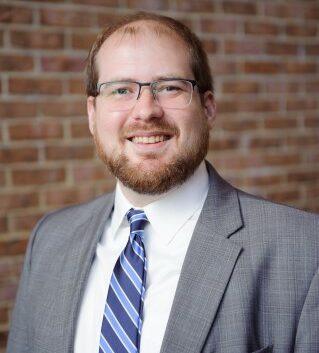November 12 marked the start of National Nurse Practitioner Week. NPs are vital and in short supply, especially for the nearly 100 million Americans living with too few nearby healthcare providers.
The “Improving Care and Access to Nurses Act” (ICAN) — recent bipartisan legislation from senators Jeff Merkley (D-Ore.) and Cynthia Lummis (R-Wyo.) — may help, but a growing pile of research clearly shows the need to think bigger. About half of states restrict NP practice, while half give NPs relative freedom to treat patients. It’s easy to see which are faring better.
The Association of American Medical Colleges anticipates an increasingly severe physician shortage of between 54,100 and 139,000 by 2033. Officially, an area is in a healthcare shortage when its population-to-provider ratio is low, or it lacks access to medical services for other reasons. Luckily, between 2010 and 2017, the number of NPs more than doubled, from 91,000 to 190,000. Yet, many are still barred from doing what they’re trained to do and easing the strain of waiting and traveling for competent care.
NPs hold relevant master’s degrees or doctorates. They take graduate courses and complete clinical hours. They pass national board certification and have state licenses. Most specialize in primary care, where the need to overcome physician shortages is greatest. That is when state and federal laws don’t get in the way.
The ICAN Act removes some Medicaid and Medicare restrictions, granting NPs increased practice independence for those patients. NPs would no longer need physicians’ permission to refer patients for basic needs such as cardiac rehabilitation, medical nutrition therapy and exercise. It’s a start, but hardly enough to make a dent in America’s need for medical care.
The act falls short with scope-of-practice authority — the activities, procedures and responsibilities NPs are allowed to perform. Particularly in the half of states where these rules remain robust, including Texas and Michigan, NPs and their patients are sold short. This may be one of the few cases where state regulations need to be overruled by legislation.
For instance, many state regulations prohibit NPs from prescribing medications and working independently. Those states require physician oversight, including costly chart reviews. Getting approval for so many tasks is not only time-consuming but reduces patient access to care.
Physicians and the American Medical Association oppose greater NP scope of practice, claiming care would not meet the highest standards. Yet, 26 states already have a full scope of practices with overwhelmingly positive results.
Kaiser Family Foundation research found that NPs could perform 80 percent to 90 percent of the primary care that physicians provide. Health Services Research found that “patients reassigned to NPs experienced similar outcomes and incurred less utilization at comparable cost relative to MD patients.”
Journal of Rural Health research found that rural diabetics received better primary care when states granted NPs greater authority — amazingly, within the first year. (Diabetes care is explicitly written into ICAN because NPs are often barred from doing things as simple as prescribing diabetic shoes.)
More generally, recent research finds that relaxing NP scope-of-practice laws saves lives. A Journal of Public Economics article shows doing so could reduce the number of “healthcare amenable deaths” — those avoidable with timelier access to healthcare — by 12 per 100,000 people. This would be meaningful among 330 million Americans.
Most public health initiatives come with a considerable price tag. Expanding provider access doesn’t. On the contrary, NPs operating independently lead to more affordable care. NPs are compensated at lower rates than physicians; more primary care means more preventive healthcare. Early detection and intervention can mitigate financial strain.
Another physician concern stems from competition. It’s only natural that doctors are anxious about vying for patients with NP-run practices. This, however, does not justify laws that harm patients. There are valid reasons for physicians or states to worry about federal overreach. However, if state legislatures continue overseeing practice scope, NPs will still be restricted by too many licensing boards’ rules.
The experiments have already taken place, and the results are clear. The states holding on to scope-of-practice are the ones overreaching. Federal legislation could bring positive change for patients without imposing financial burdens on taxpayers. While the ICAN Act does not fully address this issue, we hope the next federal law will.



